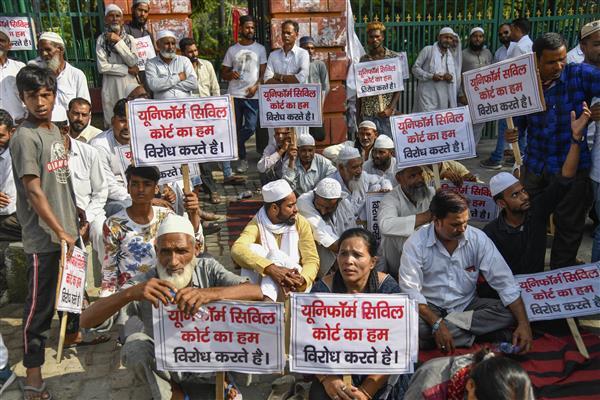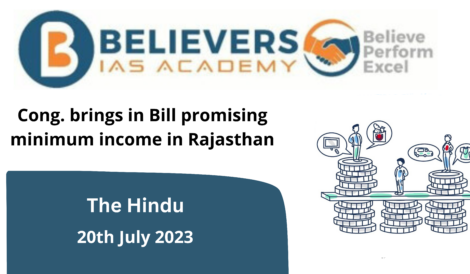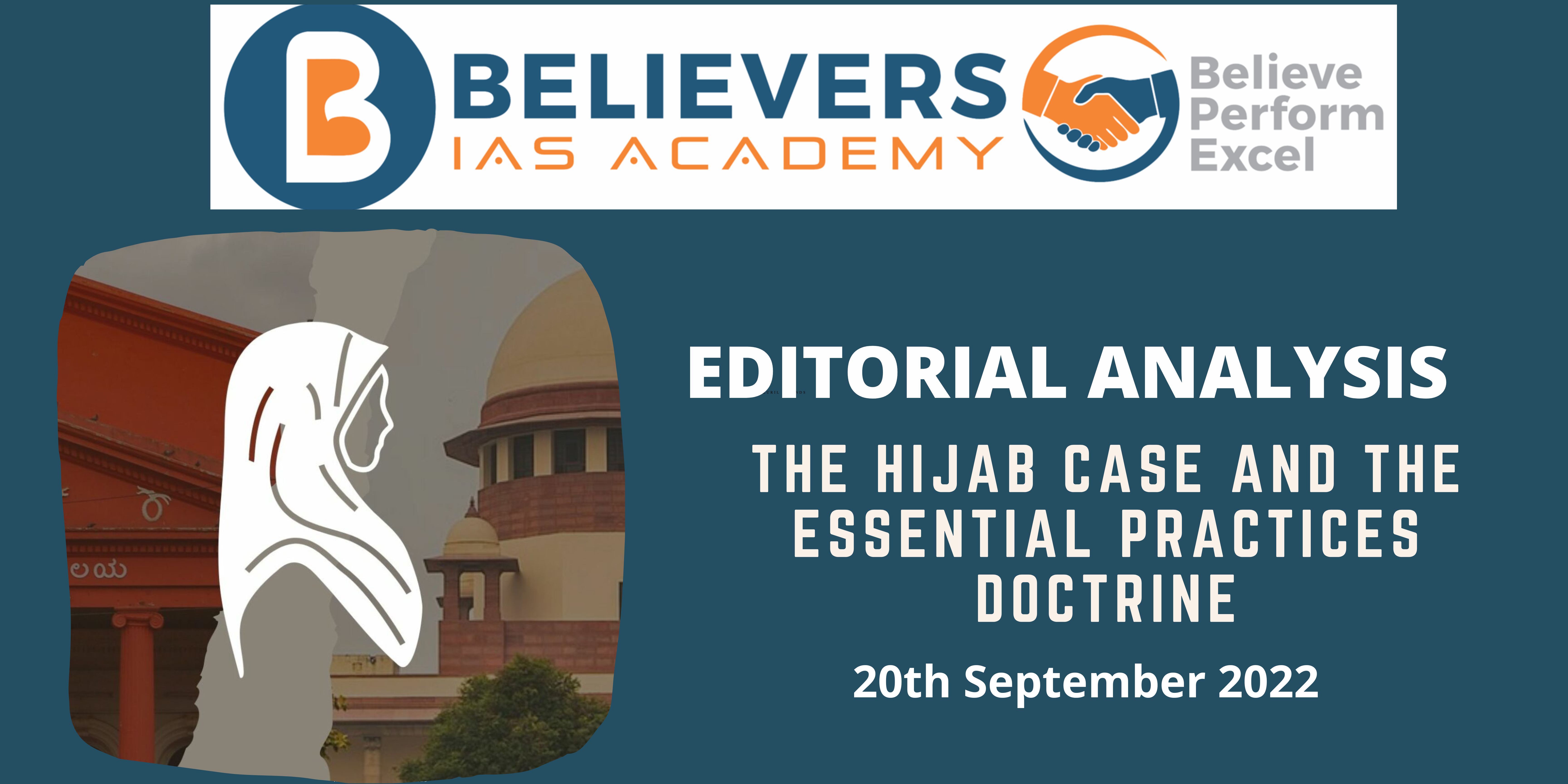Uniform Civil Code (UCC) And Effects On Tribals
Context :
The Adivasi Samanwai Samiti (ASS) brought together representatives from over 30 tribal organisations from Jharkhand to discuss the Uniform Civil Code (UCC) on Sunday. They concluded that the UCC might weaken tribal customary laws and rights. In Meghalaya, a tribal council has unanimously adopted a resolution opposing the application of the proposed Uniform Civil Code (UCC) in territories under its control.
What is Uniform Civil Code?
- The UCC is a plan to create and put into effect a set of personal laws that would apply to all Indian people regardless of their gender, sexual orientation, or religion.
- Present Situation: Currently, religious scriptures in India serve as the basis for personal law, leading to various legal systems for various religious communities. These laws address topics including inheritance, adoption, marriage, divorce, and maintenance.
- Background information: Personal laws were first imposed on Hindus and Muslims during the British Raj. Because they were worried that community leaders would object, the British government refrained from interfering in this area.
- Exception of Goa: The state of Goa, which was ruled by the Portuguese during colonial times, is an exception and still adheres to common family law, known as the Goa Civil Code. As a result, it is currently the only state in India to have a unified civil code.
- Hindu Code Bills: The government of India passed the Hindu Code Bills after gaining its independence to codify and update the personal laws of several sects of Indian faiths, including Jainism, Buddhism, Hinduism, and Hinduism. Christians, Jews, Muslims, and Parsis, on the other hand, were exempt and considered as separate communities.
- Shah Bano Case: The Shah Bano case in 1985 helped the UCC gain notoriety. In this instance, a Muslim woman who had recently divorced was demanding maintenance. The discussion focused on how to ensure that certain laws apply to all citizens while also preserving their right to engage in religious activities.
- Opposition & Dissension: The adoption of a standard civil code has been a divisive topic. The political left wing, Muslim organisations, and conservative religious organisations that support the preservation of Sharia law and religious customs have all opposed the UCC.
- The Indian constitution permits religious organisations to run their affConstitutional provisions: airs and ensures citizens’ right to practise their religion freely (Articles 25–28). The need for a unified civil code is suggested by Article 44 of the constitution, which emphasises the need for the state to implement directive principles and common law when creating national policy.
Where do the tribals in central India stand in implementing UCC?
- Under the umbrella of Adivasi Samanwai Samiti (ASS), representatives from more than 30 tribal organisations from Jharkhand gathered in Ranchi to discuss the Uniform Civil Code (UCC).
- The tribal bodies expressed worry that the UCC’s adoption may weaken their rights and customary rules, endangering their ability to maintain their traditional identity.
- They decided to take action and ask the Law Commission to revoke the UCC proposal because they think it may jeopardise their cultural and legal customs.
- The tribal bodies also decided to protest the Law Commission’s next UCC consultation and voice their disapproval of the draught code.
- It was emphasised that in Scheduled Areas, where common law does not apply, the Indian Constitution’s sixth Schedule applies.
- Tribes who live in Scheduled Areas are regulated by their own customary rules, which explains why laws like the Hindu Marriage Act and the Indian Succession Act do not apply to them.
Where do the tribals in North Eastern India Stand in implementing UCC?
- Tribal Council Opposition: In Meghalaya, the Khasi Hills Autonomous District Council (KHADC) approved a resolution opposing the application of the proposed Uniform Civil Code (UCC) inside its territorial limits.
- UCC’s objectives: The UCC seeks to create a standard body of personal rules that would govern all Indian citizens, regardless of their religious affiliations. It covers a variety of topics, including succession, adoption, inheritance, and marriage.
- Concerns of the Khasi Community: Pyniaid Sing Syiem, the main executive member of the KHADC, voiced worry that the UCC will adversely affect the Khasi community’s customs, traditions, practises, inheritance, marriage, and religious freedom.
- Matrilineal System: In Meghalaya, the Khasis, Garo, and Jaintia communities all adhere to this system. The youngest daughter inherits the family’s property under this system, and children adopt their mother’s last name.
- Khasi Community Dominance: The KHADC primarily administers the areas where the Khasi community predominates. As a result, the resolution adopted by the council reflects the Khasi community’s resistance to the UCC’s adoption.
- Protection under the Sixth Schedule: To safeguard and defend the interests of the Khasis, the resolution implores the Union government to refrain from enforcing the UCC within the KHADC’s territorial jurisdiction. This proposal is based on the rights granted to tribal territories under the Indian Constitution’s Sixth Schedule.
- Other Autonomous District Councils’ Opposition: The UCC is also opposed by the Garo Hills Autonomous District Council and the Jaintia Hills Autonomous District Council, representing the Garo and Jaintia populations.





